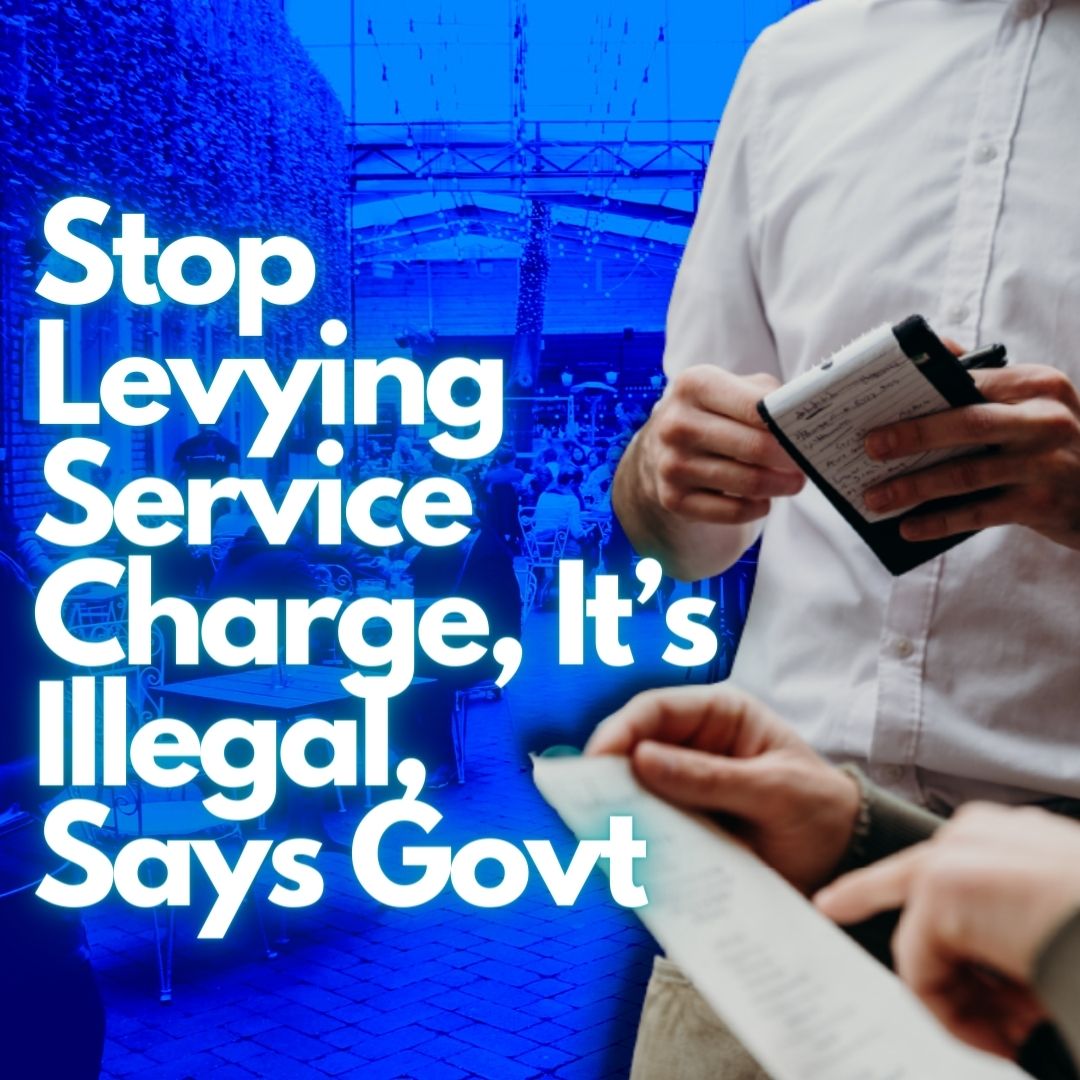Restaurants Still Making You Pay Service Charge? Govt Plans To End This 'Illegal' Practice
Writer: Snehadri Sarkar
While he is a massive sports fanatic, his interest also lies in mainstream news and nitpicking trending and less talked about everyday issues.
Delhi, 3 Jun 2022 5:59 AM GMT
Editor : Ankita Singh |
A literature lover who likes delving deeper into a wide range of societal issues and expresses her opinions about the same. Keeps looking for best-read recommendations while enjoying her coffee and tea.
Creatives : Snehadri Sarkar
While he is a massive sports fanatic, his interest also lies in mainstream news and nitpicking trending and less talked about everyday issues.
Consumer affairs secretary Rohit Kumar Singh pointed out that consumers were also being forced to pay service charges often fixed at arbitrarily high rates by eateries.
The central government stated on June 2 that service charges levied by restaurants are completely illegal and asked the National Restaurant Association of India (NRAI) to end the practice instantly. This move was made at a meeting between the NRAI and the consumer affairs ministry on discussions over objections by consumers being forced to pay service charges.
No More Service Charges
This decision came right after the Centre took notice of several media reports and the resentments registered by numerous consumers on the National Consumer Helpline, as per a report in Mint.
Furthermore, in a letter to the NRAI president, consumer affairs secretary Rohit Kumar Singh stated that eateries and restaurants were collecting service charges from consumers by default, even after such collection is voluntary. The secretary had also pointed out that consumers were also being forced to pay service charges often fixed at arbitrarily high rates by eateries. Additionally, the secretary further added that consumers were 'falsely misled' on the legal standing of such charges and were harassed by restaurants when they requested these be removed from the bill.
According to an official release, major restaurant associations attended the meeting, including the National Restaurant Association of India (NRAI) and the Federation of Hotel and Restaurant Associations of India (FHRAI) and consumer organisations.
Significant issues put forward by the consumers on the National Consumer Helpline of DoCA relating to service charge was also discussed. Furthermore, guidelines on fair trade practices in relation to the charging of service were also referred to.
Paying Service Charge Is Optional
The restaurant associations noticed that when service charges are mentioned on the menu, it applies an implied consent of the customers to pay the cost. Hotels/restaurants main use service charge to pay the workers and staff and is not charged for the experience or food served to the consumer.
Consumer Organisations have also noticed that levying service charges is patently arbitrary and includes an unfair and restrictive trade practice under the Consumer Protection Act. While questioning the legitimacy of such a charge, it was emphasised that since there is no bar on hotels/restaurants on fixing their food costs, adding a further charge in the name of service charge is damaging to the rights of consumers.
Kabir Suri, NRAI President, stated that levying service charges is "neither illegal, nor an unfair trade practice as alleged, and this debate in the public domain is creating unnecessary confusion and disruption in smooth operations of restaurants."
"The service charge is transparent, worker-friendly and is also recognised by many judicial orders which have been shared with the department. In addition, the government also earns revenue from the service charge as tax is paid by restaurants on the same," he said.
Furthermore, FHRAI on June 2 stated that a restaurant collecting service charge is neither illegal nor is in violation of the law. The association also illustrated that a service charge, which can be marked as any other charge collected by an establishment, is also part of the invitation offered by the restaurant to potential consumers. It is for the people to determine if they wish to patronise the restaurant or not, FHRAI stated in a separate statement.
Also Read: Stopping Harmful Online Activities! WhatsApp Banned Over 16 Lakh Indian Users' Accounts In April
 All section
All section















